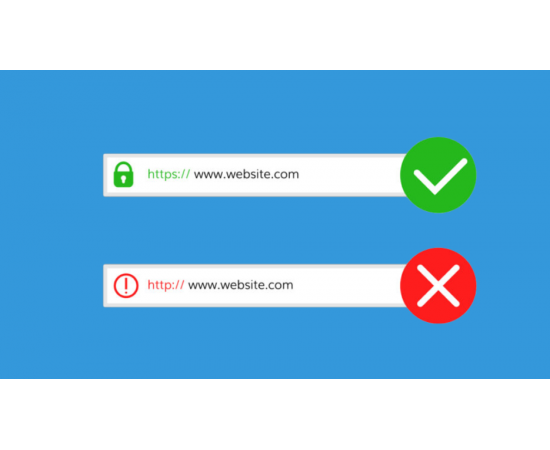
You will have already noticed that some websites show you how safe, but others do not. If you own a website, then you have definitely thought about what an SSL certificate is and whether you need it.
Internet browsers are already showing changes to the way they view sites that load HTTP without an SSL certificate. This allows many site owners to ask a question:
"Does my site need an SSL certificate?"
Short version of the answer - Yes.
An SSL certificate encrypts data entered by a user on your sites so that you can securely travel from your browser to your web server. Credit card numbers are one of the most important types of confidential data that require an SSL certificate. Google has taken the position that ALL data submitted to your site should be protected by SSL. You can easily determine if your site has an SSL certificate or if your site URL starts with HTTP or HTTPS. If it is loaded in a browser using HTTPS at the beginning, then your site has SSL. But it is also important to see if the adjacent HTTPS appears "Secure".
Over the past few years, the web has slowly moved closer to a fully encrypted browsing experience with SSL. According to Mozilla, more than half of websites on the web use SSL certificates to encrypt their traffic. If you're using Google Chrome in your browser, you may have noticed "Unsafe" in the location bar.
This message appeared last fall when I tried to log in to a site with an insecure login page. Starting in October, Google will apply this tag to any page that is issued over an HTTP or website without an SSL certificate.
Firefox has taken a slightly different approach and has highlighted a password box with a special note about insecure forms.
If your site doesn't collect sensitive data, such as credit card numbers, you didn't need an SSL certificate before. However, with the new browser announcements, it's now important to ensure that each site has an SSL certificate and is loaded using HTTPS.
Why should my site include an SSL certificate?
1. SSL certificates enable data transfer
It is important to protect the data that is submitted to your web server from users, especially if that data is confidential. Whether a user of your site submits a contact form, login form, or credit card information, it's important to keep their data on with an SSL certificate.
2. An SSL certificate has the benefits of SEO
Google's search algorithm gives sites improvements to your site in their search rankings if your site has an SSL certificate. It may not be noticeable, but it's one of the many factors Google takes into account when calculating where your site should come from in search results.
3. SSL certificates earn the trust of users
When a user sees an SSL certificate, they can be sure that their data is secure when it comes to your web server. An SSL certificate increases the trust and confidence of your site.
